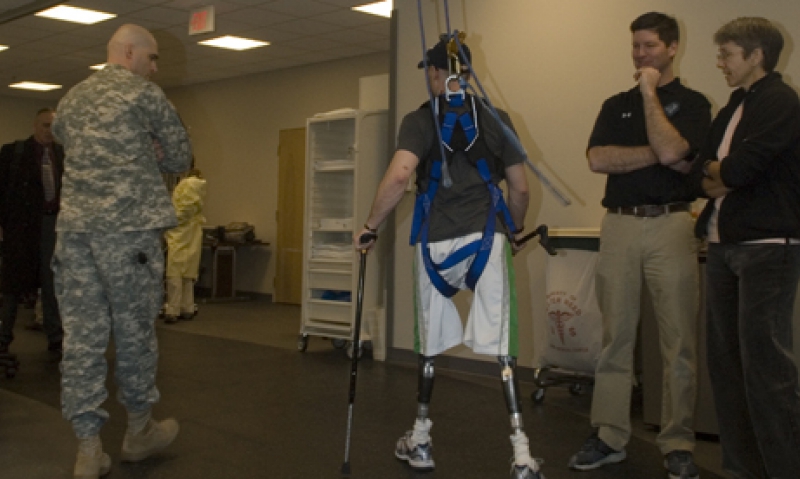
Legion: More VA specialty staff needed
During recent visits to VA's five polytrauma rehabilitation centers, American Legion officials discovered staffing shortages in several specialty areas.
"The American Legion finds this unacceptable," said Denise Williams in her written testimony before a House subcommittee July 22. "The Department of Veterans Affairs needs to step up their recruiting efforts in these areas" so that severely wounded veterans "are not faced with the dilemma of going outside of the VA for care."
Williams, assistant director of The American Legion's Veterans Affairs and Rehabilitation Division, spoke to the House Veterans' Affairs Subcommittee on Health at its hearing on "Healing the Physical Injuries of War."
Based on information and interviews collected by The American Legion at VA polytrauma centers, Williams told the subcommittee that staffing shortages currently exist in several areas: physical medicine and rehabilitation, speech and language pathology, physical therapy, and certified rehabilitation nursing.
While noting that VA has made great strides in addressing the needs of returning veterans with amputations, Williams said the agency's medical centers lack state-of-the-art prostheses that are available at DoD medical facilities.
"That is why it is of utmost importance that VA receives adequate funding - to ensure that all VA medical centers are fully equipped to address these veterans' prosthetic needs," Williams said.
The American Legion believes that VA's recently established Prosthetic Women's Workgroup is a step in the right direction to enhance the care of female veterans. Despite this implementation, Williams told the subcommittee, "there are still cases where the fitting of the prostheses for women veterans has presented problems, due to their smaller physique.
Williams urged VA to increase its focus on amputation and prosthetics research programs, "in order to enhance and create innovative means to address this population of veterans' health care needs."
DoD has reported that, as of April 3, nearly 11,000 servicemembers have been wounded in Iraq or Afghanistan; of that number, 1,552 suffered amputations.
Reminding the subcommittee that DoD provides no rehabilitation for veterans blinded by their wounds, Williams recommended that VA recruit more specialists to help the nearly 50,000 blind veterans enrolled in its health-care system. DoD has reported that 13 percent of all wounds suffered by troops in Iraq and Afghanistan are eye injuries.
Currently, VA employs about 250 specialists and coordinators who work on rehabilitation for blind veterans.
In 2008, Congress required DoD to establish a Center of Excellence for the treatment of eye injuries, and to collaborate with VA on rehabilitation programs for eye injuries.
"Unfortunately, the center has yet to be fully established because of constant funding delays and bureaucratic hurdles," Williams said. "The American Legion calls for immediate action from the Secretary of Defense and the Secretary of VA to rectify this important issue," Williams said.
